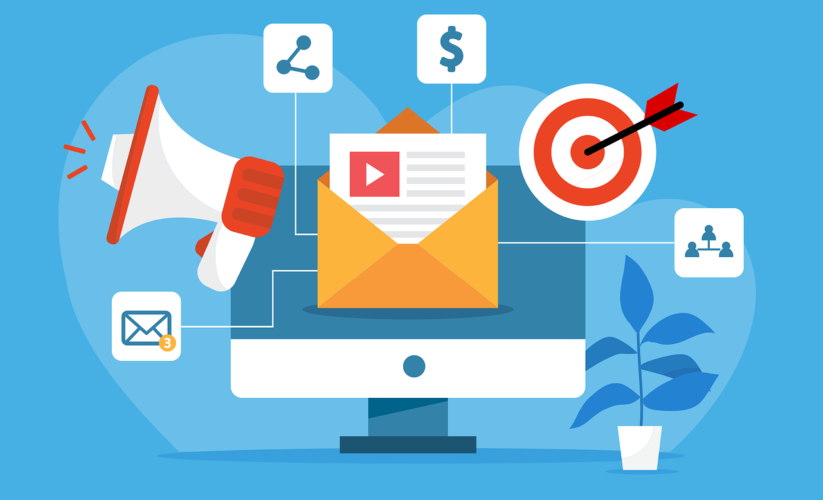
Email Marketing vs. Social Media: Which is Best for Your Business?
Which is Best for Your Business?
In today’s digital world, businesses have many marketing options, with email marketing vs social media being among the most popular. Both strategies help create brand awareness, engage customers, and drive sales, but each comes with its own set of pros and cons. Let’s explore the strengths and weaknesses of both so you can make an informed decision for your business on Blog DevZev.
What is Email Marketing?
Email marketing is the practice of sending personalized messages or campaigns directly to the inbox of your audience. It’s a direct channel that has been one of the cornerstones of digital marketing over the years.
Key Features of Email Marketing
- Personalization: Tailor messages based on customer preferences.
- Segmentation: Divide your audience into target groups for improved performance.
- Automation: Use tools in scheduling and optimization of campaigns.
- Measurable Results: Track open rates, click-through rates, and conversions.
What is Social Media Marketing?
Social media marketing is a way to promote your brand on platforms like Facebook, Instagram, Twitter, LinkedIn, and TikTok. It is great for building community and reaching large markets.
Key Characteristics of Social Media Marketing
- Engagement: Engaging others via comments, likes, and shares.
- Reach: Tap into millions or even billions of users across the world.
- Variety of Content: Communicate your message through text, images, videos, and live streams.
- Real-Time Interaction: The ability to respond to consumer inquiries and trends instantly.
Email Marketing vs. Social Media Marketing: A Detailed Comparison
- Audience Reach
- Email Marketing: You are targeting a pre-defined audience, which has opted-in to receive content from you. Relatively smaller yet more engaging.
- Social Media: You get a wider audience for your platform with the ability to reach those that don’t know about your brand. Still, algorithms will try to make you pay for higher organic reach.
- Cost Efficiency
- Email Marketing: Tools like Mailchimp or Active Campaign offer affordable plans. The ROI for email marketing is consistently high-$36 for every $1 spent, according to recent studies.
- Social Media: While posting is free, running ads can be expensive depending on your goals and audience size.
- Engagement Rates
- Email Marketing: Higher engagement due to personalization. Emails feel more personal, making recipients more likely to act.
- Social Media: It is all about trends and algorithms. As high as it may be, the audience is not always as targeted as it is in email marketing.
- Conversion Rates
- Email Marketing: High conversion rates due to its nature. A well-optimized email funnel can drive significant sales.
- Social Media: In most cases, the conversion rates are low since users are more likely to scroll than click on a CTA.
- Longevity
- Email Marketing: Emails will remain in the inbox until the subscriber decides to delete; hence, the longevity is bigger.
- Social Media: A message buries under all posts over time, reducing visibility. Real-World Applications
- Case Study: A Small Business on a Shoestring Budget Imagine the local bakery using email marketing as a means of notifying regulars of their special offerings every week. It allows consistent footfall with minimal expense.
- Case Study: Brand catering for Millennials
A clothing brand looking to engage an audience of millennials might use Instagram and TikTok for visually compelling campaigns, interacting with users through trends and viral content.
Pros and Cons of Email Marketing
Pros
- High ROI.
- Direct, personalized communication.
- More control over messaging.
Cons
- Building and maintaining a list of subscribers is required.
- Emails can be marked as spam
- Pros and Cons of Social Media Marketing
Pros
- The number of audience reach outs is huge.
- Multi-format content flexibility.
- Real-time interaction with customers.
Cons
- Depends on algorithms.
- Lower conversion rates.
Which One Should You Choose?
Consider Your Audience
If your audience is the type that would want personalized communication and can recognize your brand, then email marketing may be better. For younger audiences or increasing brand visibility, social media is the way to go.
Budget and Resources
Email marketing tends to be less expensive and offers a higher return on investment, making it the best fit for small businesses. However, brands in a position to afford paid ads can also use social media to great effect.
Business Objectives
- Return to lead nurturing and retention via email.
- Create brand awareness and engage with customers through social media.
- Integrating Email and Social Media for Maximum Impact
Instead of choosing either one, combine both for maximum effect:
- Cross-promotion: Share links of your social media in your emails and vice versa.
- Retargeting: Use social media to re-target email subscribers who didn’t convert.
- Exclusive Offers: Email-only discounts offered and communicated through your social channels to drive sign-ups.
Final Thoughts
The debate of email marketing vs. social media doesn’t have one size fits all answers. Each offers unique benefits and challenges, making the choice dependent on your specific goals and audience.
For businesses that want to be in for long term customer relationships, email marketing proves to be quite reliable. Those who are after wider reach and immediate engagement will find wonders happening through social media marketing.
This is how you can take full advantage of the strengths of both platforms: by understanding your audience and aligning strategies with your goals. Here at Blog DevZev, we believe the best results usually come from a balanced, integrated approach.




